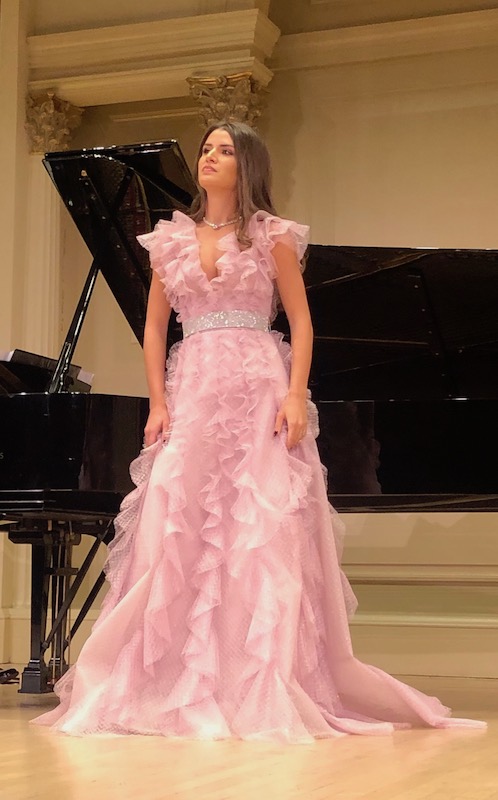Young soprano Radjenovic needs seasoning, best in songs

It can be exciting to hear young singers for the first time: encountering a new voice, with all its particularities, is a chance to hear a new artistic character and appreciate the unique color it brings to familiar music. There’s of course an element of risk here, too: the singer is not a reliable known quantity, which raises the potential reward of a great performance.
The Montenegrin soprano Tamara Radjenovic presented a program of arias and songs in Weill Hall on Saturday evening. And while she showed many fine vocal qualities, most of her selections seemed a poor fit for her voice.
Young singers are, of course, difficult to judge: Radjenovic is only 24 years old, and a voice that young still has a long way to grow. But in all of her arias, Radjenovic showed shortcomings in her still-developing technique that ranged from minor to glaring.
She owns a dark-hued instrument that lives most comfortably in her lower range, and often had trouble sustaining notes higher up. “Deh vieni, non tardar” from Le Nozze di Figaro suited her timbre better than the Vivaldi aria that opened the program, “Sposa son disprezzata.” She gave a freely flowing rendition of Mozart’s sublime love song, though her vowels largely felt trapped in the back of her mouth, covering her sound.
In “O quante volte,” Giulietta’s aria from Bellini’s I Capuleti e i Montecchi, Radjenovic’s voice caught on a number of her attacks, and she missed top notes outright—a problem that was even more evident in La Bohème’s “Quando me’n vo,” where she swooped heavily up to the top of Musetta’s arching phrase, only to land south of the target.
She was far more successful in a handful of songs, all much lower in her range, that almost made one want to hear her in more mezzo-soprano rep. She brought crisp clarity to Joaquin Rodrigo’s “De los alamos vengo, madre,” showing off a smoky sound in her middle voice. That tone turned to rich caramel in Fernando Obradors’ “Del cabello mas sutil,” featuring a bewitching vocalise at the end. Best of all was Radjenovic’s reading of Reynaldo Hahn’s “L’énamourée,” where she luxuriated in the rich and velvety tone of her lower range and crafted soft, tender phrases.
Her accompanist for the evening, pianist Djordje Stevan Nesic, was serviceable in the arias, if a little square, but he came to life for the Spanish songs, particularly Obradors’ “El vito,” where he showed an energetic flamenco fire. In spite of his somewhat flat dynamics in Chopin’s Nocturne No. 20 in c-sharp minor, he showed strong musical sense as he played delicately with his timing, and later gave a lovely, expansive rendition of Debussy’s evergreen “Clair de lune.”
The program finished with “Je veux vivre,” the enchanting show aria from Gounod’s Romeo et Juliette. Radjenovic started off well, showing a nimbleness and quick, lively sound that she had lacked in her earlier selections, but eventually the tightness at the top of her voice returned. For an encore, the two offered a charming, energetic rendition of Luigi Arditi’s waltz song “Il Bacio.”